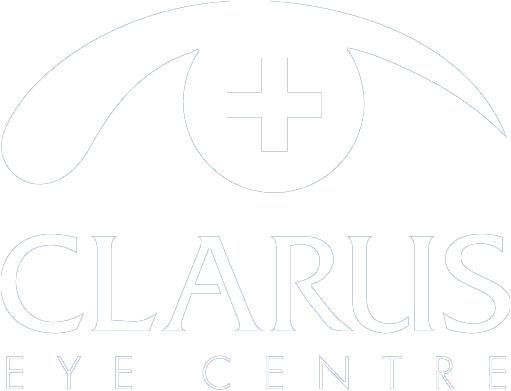How to Choose the Best Lens for Cataract Surgery
HOW TO CHOOSE THE BEST LENS FOR CATARACT SURGERY
When you are diagnosed with cataracts and your eye doctor recommends cataract surgery, it can be daunting to learn that there is much more that goes into how to choose the best lens for cataract surgery than simply going with traditional lenses that most insurance companies cover.
In today’s world of cataract care, there are many types of lenses available for cataract surgery and choosing the best lens for cataract surgery can often come down to how honest you are with yourself and your ophthalmologist about your lifestyle wants and needs post-surgery. For example, do you enjoy reading? Is it vital that you can drive at night? How often do you enjoy outdoor activities like golf or tennis? These are just a few examples of the questions that will be discussed during your consultation for cataract surgery with your cataract surgeon. It is noteworthy that during a cataract surgery consultation, many patients often realize just how significantly their cataract(s) have impacted their lives. This is the primary reason why it is important to understand what different types of lenses for cataract surgery can do to improve your vision.
Once your surgeon has explained what types of cataract surgery are available and you have discussed your overall eye health and lifestyle, you will better understand which of the options is your best lens for cataract surgery.
WHAT ARE THE DIFFERENT LENSES FOR CATARACT SURGERY?
At Clarus Eye Centre, we offer both traditional and premium lens replacement options. To learn more about what type of lens is used for cataract surgery, based on various individual factors, read on!
Traditional Cataract Surgery
This is a good option if you do not mind wearing glasses for all activities after your surgery. During surgery, the cloudy lens will be removed from your eye and a lens implant will be placed in your eye. The new lens provides vision at one focal point, such as distance or near. The preoperative measurements done prior to surgery and your discussion with your cataract surgeon will determine the intraocular lens power to be used. It is important to understand that this option usually does not fully correct your prescription. It is normal and expected to need glasses for distance and/or near vision following the traditional cataract eye surgery lens option.
Premium Cataract Surgery
LIGHT ADJUSTABLE LENS
This option allows the implantation of a lens within the eye that is adjusted over a series of sessions beginning a few weeks after surgery to allow the lens correction to be tailored to your specific visual needs. These visits include careful measurement of your vision and lens adjustments are performed depending on the findings. These adjustments are what give the new lens the customized refractive power. Adjustments are performed non-invasively, without the need for additional surgery, utilizing a special light delivery device. The careful measurements and evaluation following the surgery determine whether or not an adjustment will be performed at that session. Up to three adjustments can be performed prior to locking in the lens power. This option is great for patients who desire customized precision and are also willing to devote the time for multiple sessions after surgery for the necessary evaluation and treatments to attain that.
EXPANDED FOCAL RANGE
This may be your best option if you want to see well without glasses for most activities, including distance, intermediate-range, and near-vision tasks. Most patients will notice some glare and halos around lights when driving at night after surgery. These symptoms usually diminish over time as you adapt to the lens but may persist. Your surgeon will help you choose the type of lens implant that best suits your individual lifestyle.
SINGLE FOCUS
This may be your best option if you desire glasses independence at a single distance and you do not mind wearing glasses for tasks that require sharper vision at other distances. If you choose a DISTANCE goal, glasses will be needed for all near and intermediate vision, such as reading, working on a computer, and reading your phone. Alternatively, if you chose a NEAR goal, glasses will be needed for all distance activities such as driving and watching television.
Blended Vision or MONOVISION
This may be a viable alternative if your goal is to reduce your dependence on glasses for distance and near vision. The dominant eye is set for distance and the non-dominant eye is set for near. The goal with blended vision is for both near and far objects to be in focus. Blended vision may require some time for adaptation. There may be some compromises with blended vision, so it may not be suitable for all patients. Visual quality may not be as good as when both eyes are focused together, and depth perception may be reduced during some activities. Some patients with blended vision choose to use glasses for certain activities such as night driving and extended reading.
To choose the best lens replacement option for your cataract surgery, we recommend you do your very best to understand what your goals are for after surgery along with the different lenses for cataract surgery available prior to meeting with your cataract surgeon. This will help your surgeon work with you to choose the lens replacement option best suited to your needs.
At Clarus Eye Centre, our cataract surgeons have been trained at some of the most respected eye institutes in the country. Their expertise, experience, and compassion make them some of the most trusted and well-respected surgeons in the South Sound Region of Washington and beyond. When you choose Clarus, you are choosing excellence in cataract surgery. To learn more, visit our cataract surgery page here: https://www.claruseye.com/cataract-surgery/
………………………………………………………………………………………………………………………………...........
Additional Resources for Cataract Surgery & Cataract Lens Replacement Options:
American Academy of Ophthalmology
